The recipe for success in the restaurant trade
- Published
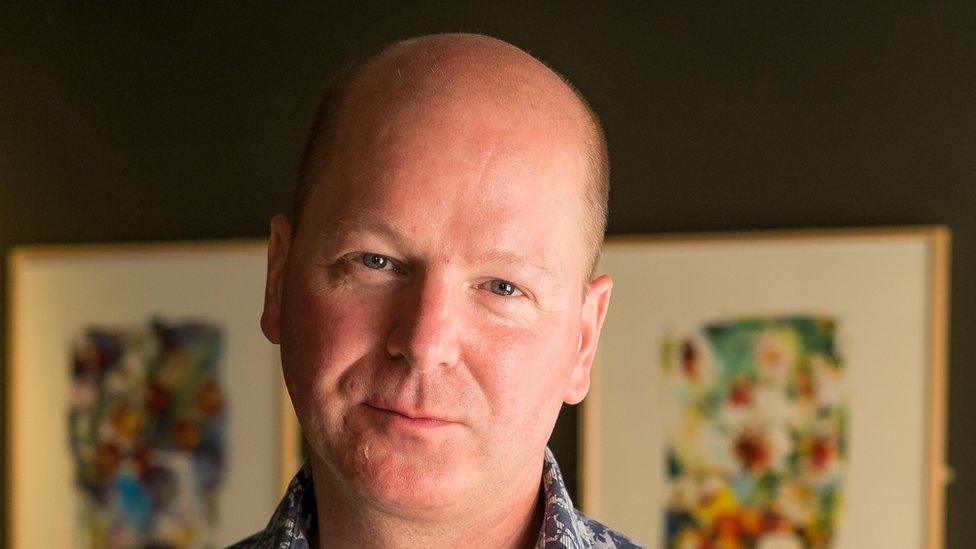
For a young man applying for a job as a waiter at one of the UK's most prestigious restaurants, David Moore's tactic was either inspired or reckless.
Mr Moore was 21 at the time, back in 1986, and after a number of years working at some insalubrious hotel restaurants in his hometown of Blackpool, in the north of England, he was trying to go to a different world.
He had applied to join Le Manoir Aux Quat'Saisons, the two Michelin star restaurant in leafy Oxfordshire, an hour's drive north west of London. Owned by celebrity chef Raymond Blanc, it remains today one of the UK's most respected eateries, with a focus on refined - and undeniably expensive - French cuisine.
Instead of just turning up for his 3pm interview, Mr Moore decided to book himself and a friend in for lunch as well.
So after driving down from Blackpool, the pair enjoyed a relaxing three course meal. Then only after they had finished, did Mr Moore announce that he was there for an interview.
Now a 51-year-old, he picks up the story: "At ten to 3 I called over a waiter and said 'I have an appointment with Alain Descenclos [the then restaurant manager], would you like to ask him to join me?'.
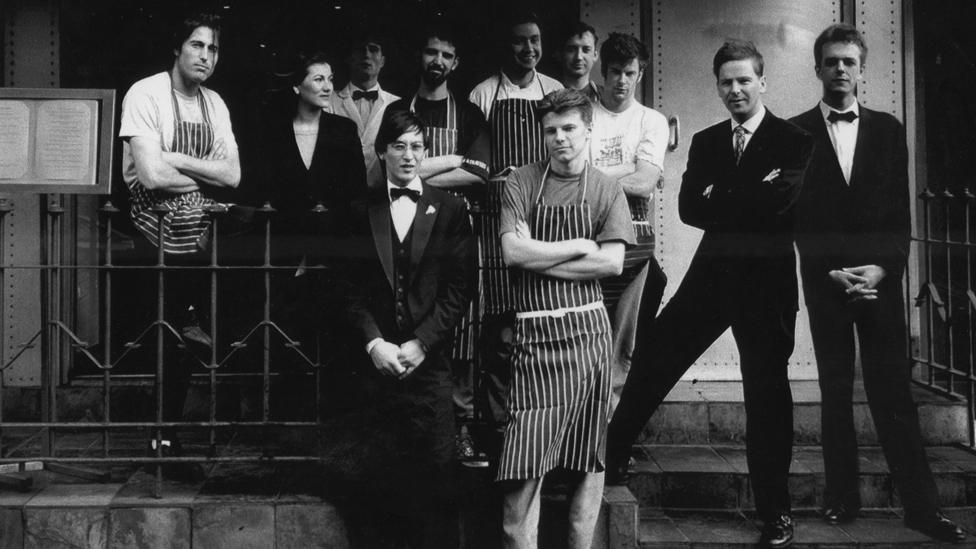
A younger Mr Moore (second right) with Pied a Terre colleagues in its early days
"I'm pretty sure that no-one has tried the same tactic at Le Manoir before or since, but I basically told him that I saw myself fitting in very nicely, that I loved the service, and we needed to sort out a start date."
Mr Moore admits that Mr Descenclos was somewhat taken aback, but he got the job.
Today, 30 years later, Mr Moore is one of the UK's best-known restaurateurs.
In addition to owning two fine dining restaurants in London - Pied a Terre and L'Autre Pied - he remains much in demand as a restaurant consultant and investor, advising others on how to run and set up their own establishments.
And he has appeared on a number of food and dining TV shows, such the BBC's The Restaurant and Masterchef: The Professionals.
He says: "I always say that the only thing harder than opening a restaurant is keeping it open."
'So alien'
Mr Moore says that working at Le Manoir, and a six month work placement immediately beforehand at another high quality UK restaurant - the Box Tree in West Yorkshire - opened his eyes to how restaurants should be run.
"In Blackpool the customer was often seen as an inconvenience," he says. "If I ever had to take food back to the kitchen, I'd think 'I'm not going to go to chef Stu or so and so because he will try to hit me'.
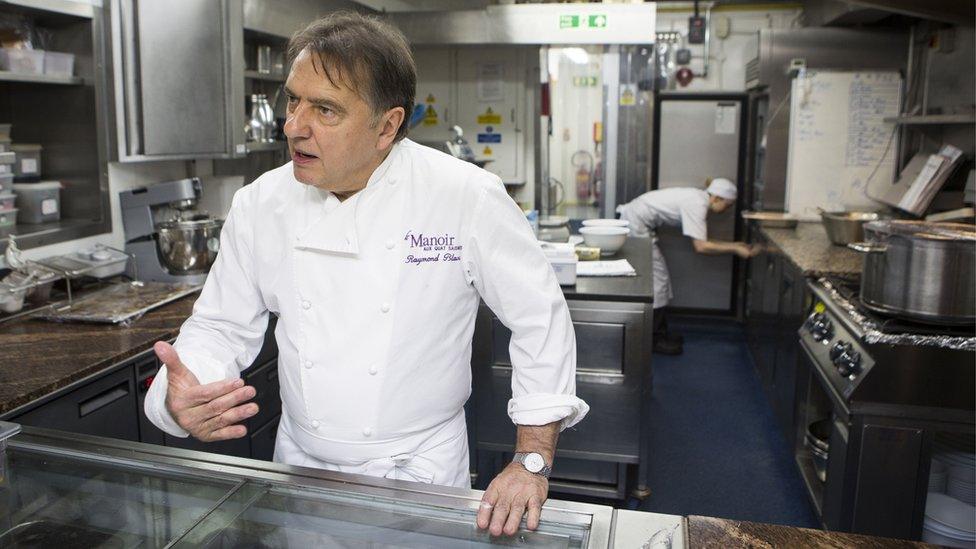
Mr Moore learnt his craft working for famous chef Raymond Blanc
"But at the Box Tree and then Le Manoir, everything was no problem, it was about really caring about the customer. To begin with I was like 'wow, this is so alien', but I just loved it."
Mr Moore eventually spent five years working at Le Manoir, rising to the position of deputy restaurant manager.
Then in 1991 he and one of the chefs - Richard Neat - left to set up their own restaurant in London, Pied a Terre.
They didn't have much money of their own, but Mr Moore persuaded a number of Le Manoir's wealthy regulars to invest a total of £187,000.
Pied a Terre opened its doors on Charlotte Street in London's Fitzrovia area in December 1991, and they had to brace themselves for the initial reviews of the newspaper critics, which still today can make or break a restaurant.
Mr Moore says: "The Evening Standard's Fay Maschler said that we'd be closed within six months."
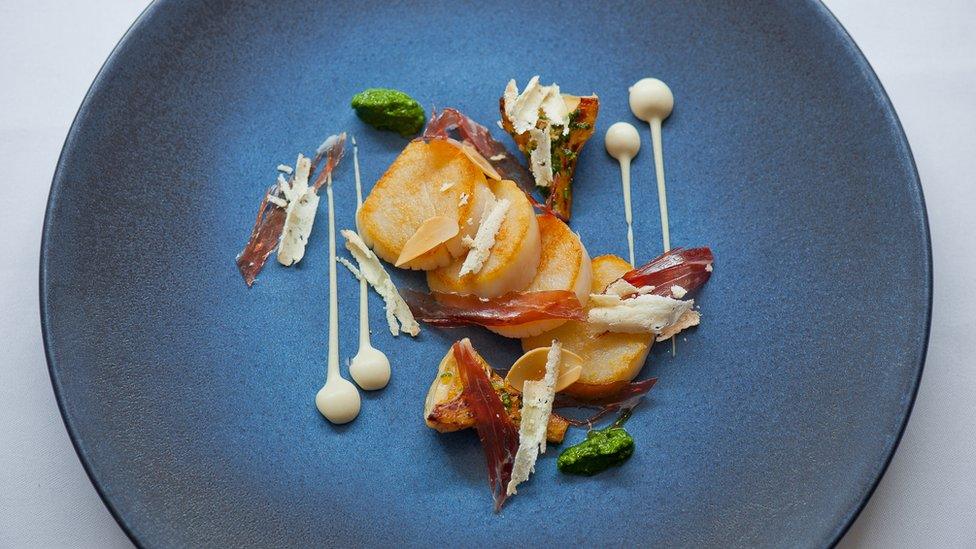
Pied a Terre is hoping to regain its second Michelin star
Thankfully the Daily Telegraph gave Pied a Terre a glowing review, and within days it was fully booked.
"For the next three or four years we lived above the restaurant," he says. "I was first in, last out, and always tired, but very lucky."
In 1993 the restaurant was awarded a Michelin star - the holy grail for fine dining restaurants - with a second following in 1996.
Pied a Terre is now coming up to 25-years-old, and while head chefs have come and gone, Mr Moore remains at the helm.
He says the restaurant, which enjoys revenues of £2m a year, is now working hard to regain the second Michelin star it lost in 2011.
Meanwhile, the sister restaurant opened in 2007, and Mr Moore's other investments include a chain of cocktail bars, and two barbeque restaurants.
'Perfecting'
Mr Moore says he is regularly approached for advice by people wishing to set up their own restaurants. His reply is more often that they need to have deep pockets, and look outside central London.
"Everyone wants to open in Soho [central London], but these days you don't have a chance if you haven't got £1m," he says.
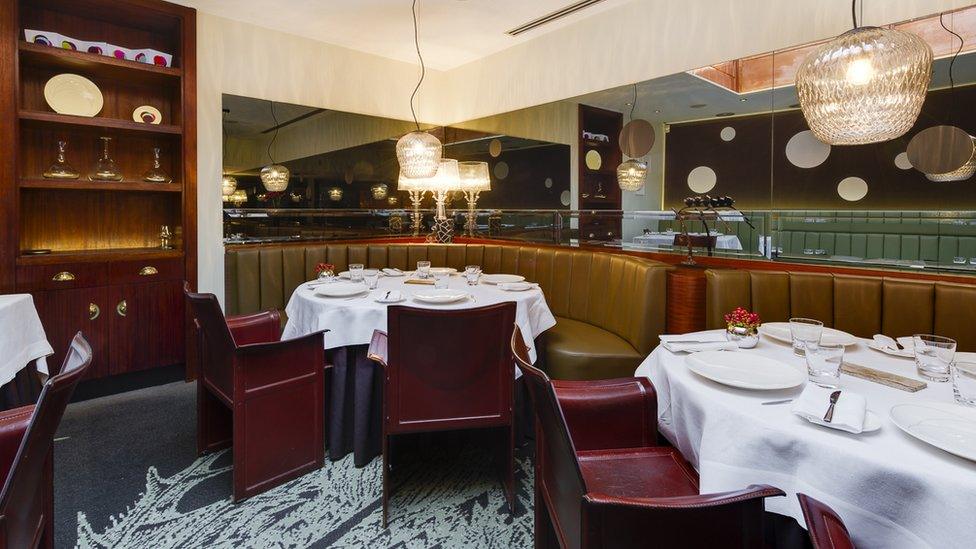
Pied a Terre remains Mr Moore's main focus
"[Outside of that area] you need a minimum of £550,000, but I would advise nearer £750,000, and have another £100,000 in case you open at the same time as a 7/7 [the terrorist attacks in London in 2005]."
For new restaurants to be successful, Mr Moore says they have to do a number of things correctly, including food that stands out, and good customer service - "it's simple, hire nice people".
And while it is far more expensive to open a restaurant today compared with the 1980s, he says that one advantage establishments have today is that social media makes the vital promotional work far easier.
He says: "Back in the very early days of Pied a Terre, we had to knock on doors to drum up business, literally walking up and down the streets near the restaurant."
Although Mr Moore says he is now looking at opening a chain of restaurants aimed at mums and dads with young children, Tracey MacLeod, restaurant critic for The Independent newspaper, says she likes the fact he has never over-extended himself.
"I admire the fact that he has never gone for quick expansion," she says. "Instead he has gone down the route of perfecting what he does rather than going for the quick buck."
For people thinking of getting a job in the restaurant industry, Mr Moore's advice is don't send a letter, instead turn up in person. Whether you wish to eat lunch before introducing yourself is up to you.